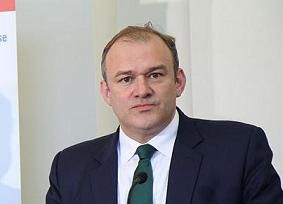Ed Davey advises Saudi Arabia at UN Climate talks
UK Secretary for Energy and Climate Change advises Saudi Arabia to focus on renewables rather than financial assistance by international nations

Many leading oil producers say a tough deal at the climate meetings have requested for more support from the world to expand their economy.
According to the UK Secretary for Energy and Climate Change Ed Davey, nations that produce oil, gas and coal should not be offered financial assistance to help them cope with the falling demand of their products in the event of a UN climate deal.
Ed Davey supports plans to radically mitigate the level of green house gas emissions and rejected Saudi Arabia’s proposal that wealthy countries should assist oil dependent economies as they phase out fossil fuels in order to tackle climate change.
“I don’t think we’ll be focusing on compensation in Saudi Arabia,” he said, adding that Saudi and other Gulf states have been already benefited financially from their fossil fuels reserves.
After Venezuela, South America, Saudi Arabia has the second largest oil reserves in the world which provides 45% of it GDP.
In order for countries to succeed in their aim to reaching a zero emissions world by 2050, the UN Climate deal in Lima will have to agree on a rapid phase out of fossil fuels.
Davey advises Saudi Arabia to focus on diversifying its economy by investing in renewables rather than encouraging international support for financial assistance.
In 2009 the country announced plans to invest $109bn in the solar industry that would generate a third of the nation’s electricity by 2032.
Ed Davey says: “Saudi Arabia has a very ambitious programme of investing in solar and there are other Gulf States investing in other renewable technologies; some are investing in nuclear, and so on. That is a sensible way forward. It’s what other countries have to do.”
However, Saudi Arabia’s lead climate negotiator, Khalid Abuleif says: “If this agreement does not cater for the concerns of, and the vulnerabilities of all parties, not only the oil producers but small island states and others, we are not going to help the process”.






